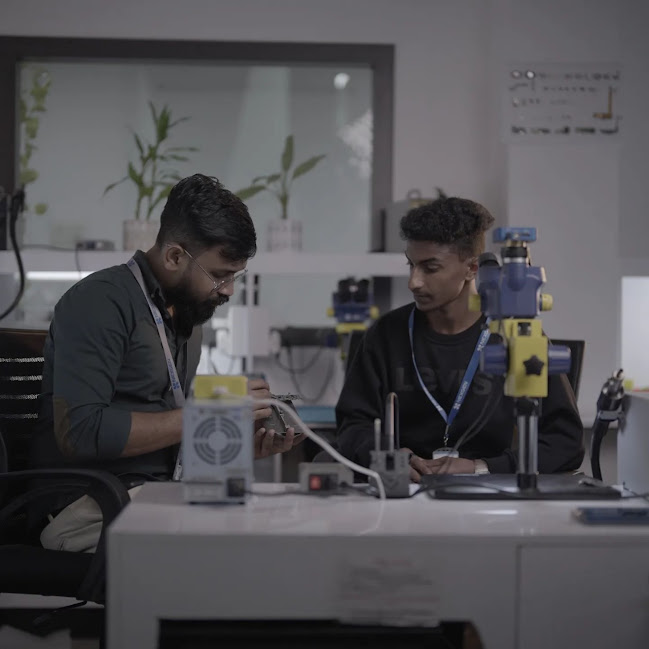Avoiding Disaster: 6 Critical Mistakes to Steer Clear of in Your Mobile Repairing Training Institute
Building and managing a Mobile Repairing Training Institute can be a rewarding venture, but certain mistakes can lead to its downfall. Identifying and avoiding these critical errors is paramount for the sustained success of your institute. Here are six mistakes that, if not addressed, can potentially destroy your Mobile Repairing Training Institute:
1. Outdated Curriculum and Irrelevant Content:
Mistake: Allowing the curriculum to become outdated and irrelevant is a recipe for disaster. In the rapidly evolving field of mobile repairing, failure to keep the curriculum current can result in graduates lacking the skills needed in the industry.
Avoidance Strategy: Regularly review and update the curriculum to incorporate the latest technological advancements, repair techniques, and industry trends. Consult with industry experts and professionals to ensure that the training provided aligns with the current demands of the mobile repair sector.
2. Insufficient Practical Training and Hands-On Experience:
Mistake: Overemphasizing theoretical knowledge at the expense of practical training is a common error. Graduates need hands-on experience to confidently apply their skills in real-world scenarios, and neglecting this aspect can undermine the effectiveness of your training institute.
Avoidance Strategy: Prioritize practical training by providing well-equipped labs with a diverse range of mobile devices. Encourage students to engage in hands-on exercises, conduct repairs, and simulate real-world situations. Gaining real-world experience is crucial to developing competence and confidence.
3. Lack of Industry Partnerships and Collaborations:
Mistake: Neglecting to establish partnerships with local repair businesses, mobile retailers, and manufacturers can limit opportunities for internships, job placements, and industry insights. Without industry collaborations, your institute may lose credibility and relevance.
Avoidance Strategy: Actively seek and foster partnerships with key industry players. Collaborate on workshops, internships, and joint initiatives to enhance the practical exposure and employability of your graduates. Industry connections contribute to the success and reputation of your mobile repair training institute.
4. Soft Skills Development Oversight:
Mistake: Overlooking the importance of soft skills development is a critical error. Effective communication, problem-solving, and customer service skills are equally vital for the success of mobile repair professionals, and neglecting these areas can hinder graduates' overall performance.
Avoidance Strategy: Integrate modules that focus on soft skills development into your training program. Conduct interactive sessions, role-playing exercises, and real-world simulations to help students refine their interpersonal skills. A well-rounded education includes both technical expertise and soft skills.
5. Inadequate Instructor Training and Professional Development:
Mistake: Assuming that technical expertise alone qualifies an individual to be an effective instructor is a common misconception. Instructors need continuous training and professional development to deliver information effectively and engage students.
Avoidance Strategy: Invest in the training and professional development of your instructors. Provide updates on the latest technological advancements, teaching methodologies, and industry best practices. Encourage instructors to attend workshops, seminars, and conferences to stay current and engaged.
6. Weak Student Placement Support System:
Mistake: Neglecting to provide robust student placement support can result in dissatisfaction among graduates and tarnish the reputation of your mobile repair training institute. If students struggle to find employment after completing their training, it reflects poorly on the institute's effectiveness.
Avoidance Strategy: Establish a comprehensive student placement support system. Develop partnerships with local businesses, repair shops, and mobile retailers to facilitate job placements. Offer career counseling services, resume-building workshops, and interview preparation to enhance students' chances of securing employment.
Bonus Avoidance Strategy: Ignoring Technological Changes:
Mistake: Failing to adapt to technological changes in the mobile industry can render your institute obsolete. Ignoring emerging trends and not incorporating new technologies into the curriculum can result in graduates being ill-equipped to meet industry demands.
Avoidance Strategy: Stay vigilant about technological changes. Regularly update the curriculum to include the latest devices, repair techniques, and software updates. Invest in state-of-the-art equipment and tools to ensure that students receive training on the most current technologies.
In conclusion, steering clear of these critical mistakes is essential for the longevity and success of your Mobile Repairing Training Institute. By addressing issues such as outdated curriculum, insufficient practical training, lack of industry partnerships, oversight in soft skills development, inadequate instructor training, and a weak student placement support system, you can ensure that your institute remains relevant, effective, and well-regarded in the competitive field of mobile repairing education.
Contact: +9190618 82000, +919061872000
Read more about Who Can Benefit from a Mobile Repair Centre?






Comments
Post a Comment